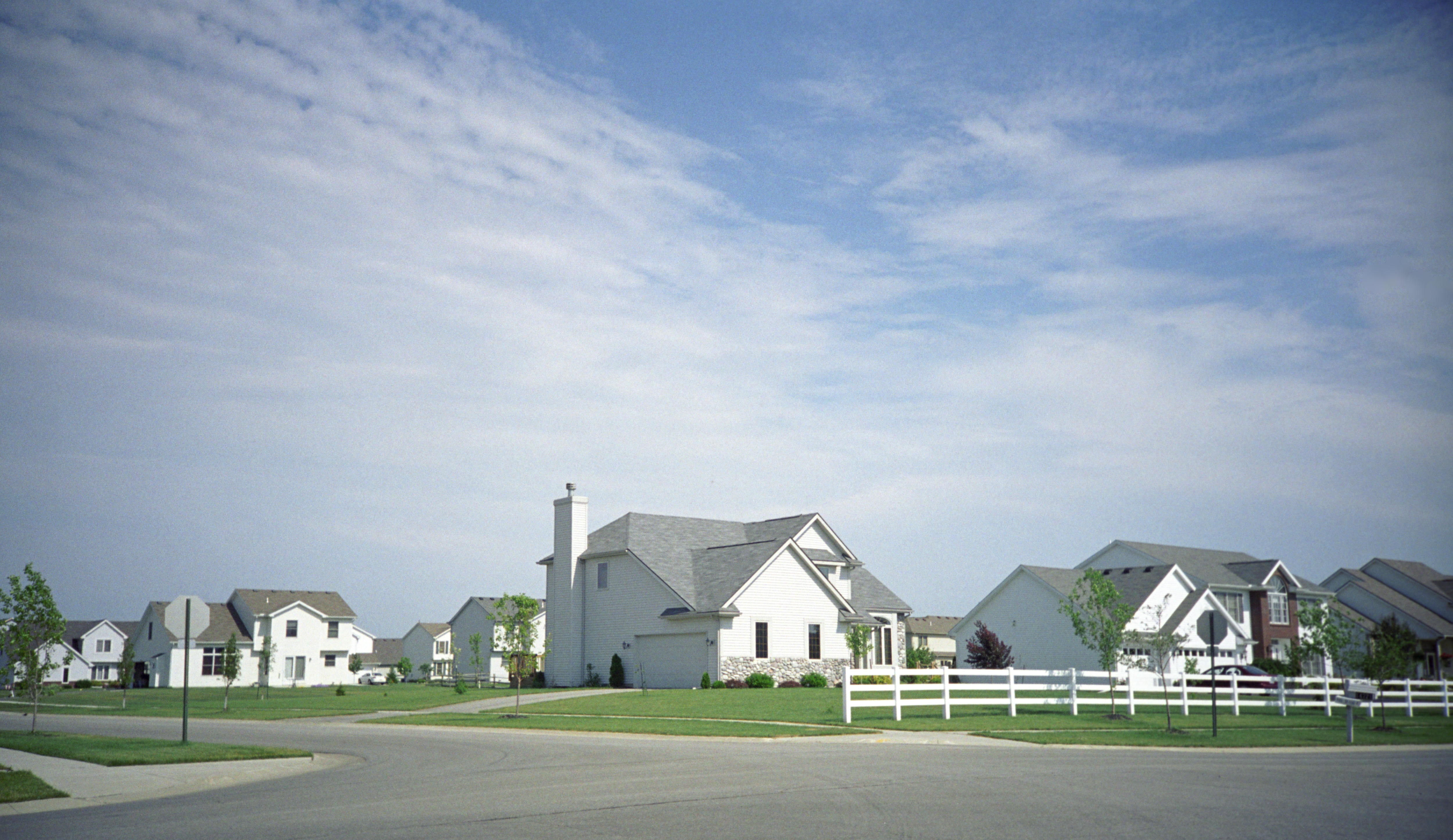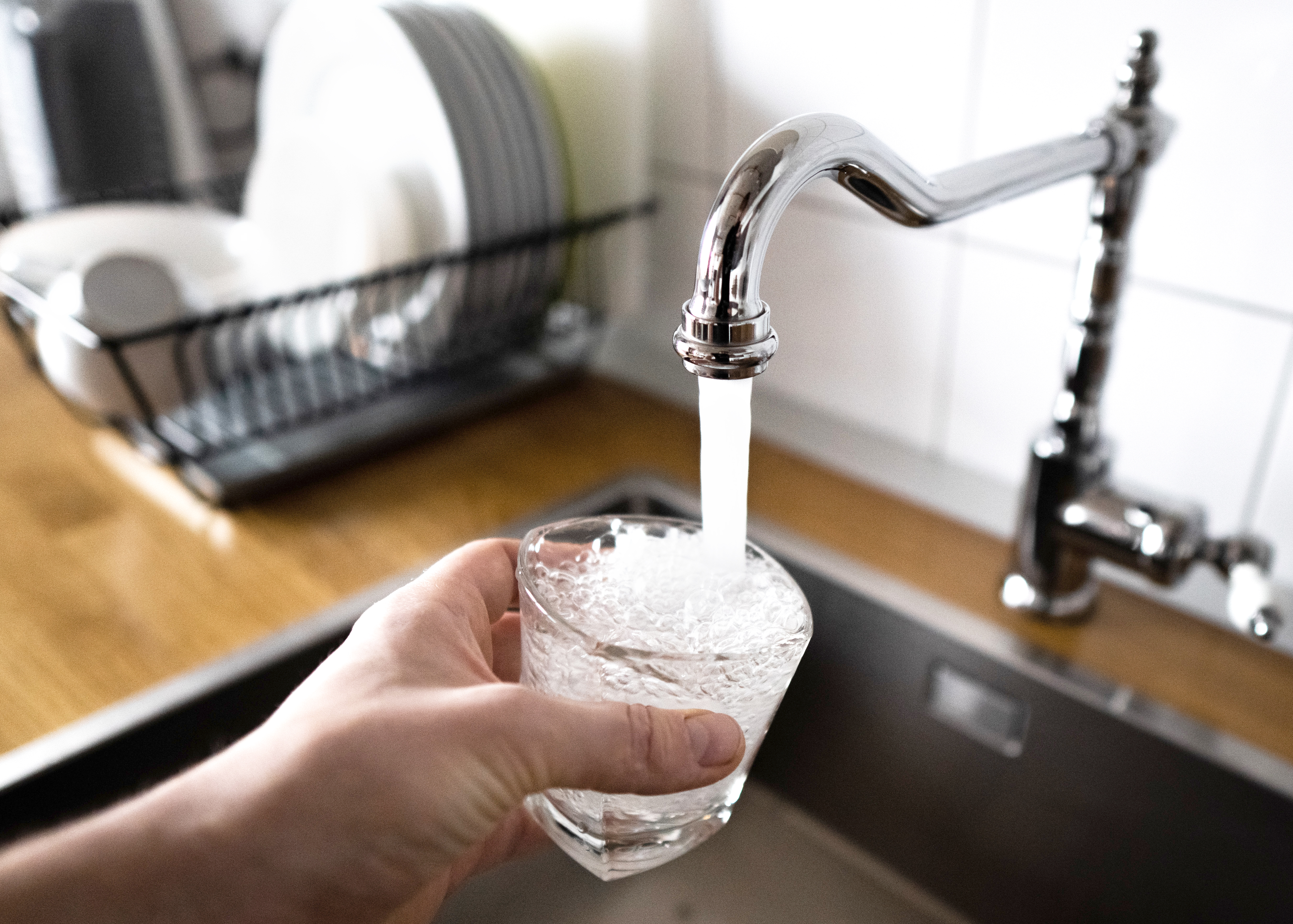
Discover the leading factors affecting your main water line replacement cost in Columbus, including length, material selection, and installation details.
Wave a soft goodbye to hard water and high water pressure
Hard water and high water pressure lead to plenty of plumbing problems, such as appliance failure, leaky pipes, and increased utility bills.
Before fixing these issues, diagnose them by looking for streaks on washed dishes, dinged up washed clothing, white spots on coffee machines, and the telltale clanging of water pipes.
Install a water softener to handle hard water and a pressure regulating valve (PRV) to maintain optimum water pressure.
Not all parts of the country are equal when it comes to plumbing efficiency. The water supplies of some areas include plenty of heavy minerals. When these minerals build up in your pipes, the end result is hard water. Hard water leads to all kinds of issues, one of which being high water pressure, as the heavier-than-average water speeds down the pipes to impact pressurization. Hard water also causes low water pressure when the minerals start clogging up the pipes.
Luckily, living in a part of the country with hard water is not a plumbing death sentence. There are plenty of things to do to fix the problem and any related water pressure problems.
Before we get into how to diagnose these issues and, most importantly, how to fix them, let’s go over the consequences of hard water and high water pressure.
Hard water is notorious for putting even the heartiest of plumbing systems through their paces. Here are some of the long-term consequences of hard water build up in your pipes.
Water Heater Inefficiency: Minerals do not conduct heat well, so they decrease your heater’s efficiency. They also coat the heater’s heating element, leading to eventual arcing and an eventual decrease in the overall lifespan of the unit.
Damage to Other Appliances: Dishwashers, washing machines, and coffee makers all rely on water, so hard water shortens the life of appliances, not to mention their usefulness. Additionally, hard water scratches and dings fragile pieces of dishware you place in a dishwasher, and clothes washing machines do the same to certain linens.
Pipe Damage: Pipes are corrosive in nature, so minerals eat away at these pipes over time, leading to holes and leaks. Showerheads, shower valves, and related plumbing fixtures also clog with minerals, necessitating replacement.
High water pressure may make for an extremely strong shower, but there are risks involved with letting any water pressure issue go on for too long.
Plumbing Problems: Ever hear pipes banging as water whizzes through the plumbing system? Not only are these noises annoying and scary, they also lead to leaks, floods, and other major problems.
Increased Water Bills: High water pressure increases your overall water bill in many ways, but mostly because it forces certain water-based appliances, such as toilets and faucets, to work harder.
Appliance Damage: High water pressure is no friend to your appliances, as the increased force of this water eventually leads to water heater damage, dishwasher damage, and more.
Before you can address these issues, they need positive diagnoses. Here are some signs your home has high water pressure, hard water, or—gasp—both.
Run simple efficiency and pressure checks to find any issues early. Strap a water pressure test gauge to a faucet, available at hardware stores, and wait for a reading. Normal water pressure is generally between 40 and 60 PSI.
There are also home test kits for hard water that consist of color-coded strips. Each color corresponds to water hardness, with results measured in grains per gallon (GPG). Normal water hardness is one to six GPG.
You may not need fancy tests to tell if you have hard water or high water pressure. If you hear your pipes clanging at all hours of the day, this typically indicates high water pressure. If your dishes come out of the machine with plenty of spots and streaks, this indicates hard water. Scale deposits on plumbing fixtures, such as faucets, are also a telltale sign, as are white spots on your coffee maker.
If all else fails, call in a technician for a professional plumbing inspection. Inspectors will find evidence of hard water and high water pressure, but they’ll also check your toilets, sewage lines, water supply, water heater, and the condition of your pipes. A professional plumbing inspection costs around $200.
Now the fun part. You have hard water or high water pressure, so what should you do about it? Luckily, you have plenty of options.
Install a water softener to nip the problem of hard water right in the bud. These appliances use sodium chloride and a brine tank to flush out minerals. There are saltless models available if you are sensitive to sodium, in addition to water conditioners and reverse osmosis water filters, each achieving a similar goal. Water softeners cost an average of $1,500 and last for an average of 15 years. Installation is DIY-friendly, but you’ll need to know the location of your main water line.
Protect your appliances from the adverse effects of hard water and high pressure. Start by flushing the sediment from your water heater, repeating this process yearly. Next, install a pressure regulating valve (PRV) near your main water shutoff valve. PRVs became mandatory after 2002, but if your home comes from the previous century, it may lack this valve. For dishwashers and washing machines, vinegar is your best friend. Run empty loads in both machines with one to three cups of vinegar, depending on the size of the appliance. You should also soak showerheads and any removable fixtures in containers of vinegar.
Electronic water descalers help protect your pipes from mineral build-up, otherwise known as scale. These gadgets are fairly inexpensive, at around $200, and easy to install, but they merely force water out of the system before the minerals cling to the pipes, so your pipes are protected from damage but your water hardness remains unaffected. As a matter of fact, water hardness could increase with regular use of a descaling device.
Another pipe descaling option is to call vinegar in for another rescue. Turn your water heater off, drain part of the heater with an attached water hose, and pour in two gallons of vinegar. Turn the water heater and hot water back on and run your faucets on hot until you smell vinegar. Turn off the faucets and wait six hours before flushing the system. Voila. Quick and easy pipe descaling.
Calling a local plumber is the easiest way to nip these problems in the bud. Hiring a plumber costs $50 to $200 per hour, but they’ll make sure your hard water and water pressure issues go away for good. In other words, this is not their first hard water rodeo.
From average costs to expert advice, get all the answers you need to get your job done.

Discover the leading factors affecting your main water line replacement cost in Columbus, including length, material selection, and installation details.

Learn about main water line repair costs in Columbus and what affects pricing to be prepared before you start getting estimates.

Learn how much plumbers cost in Columbus, Ohio. Discover pricing for faucet repairs, pipe work, and emergency services, plus how you can save money.

Touchless faucets offer benefits like saving water, avoiding germs, and simplifying cleanup. Learn the top benefits of hands-free faucets and decide whether to switch.

Insulating your pipes is a simple DIY project that can prevent costly damage and lower your energy bills. Learn how to insulate your pipes yourself with this easy guide.

Follow this guide to learn how to install a kitchen sink drain, from shutting off the water supply to lowering the drain outlet and connecting the P-trap.